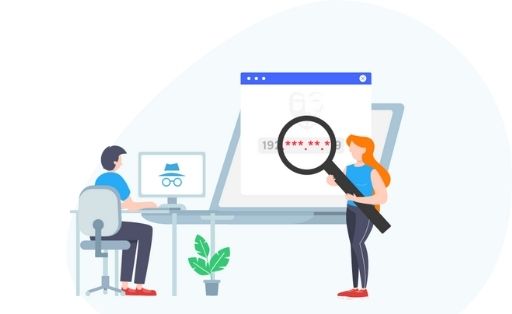Anonymous IPs, also called proxies, are many web connections that change a user’s IP address and help them bypass the network filtering system. Their main purpose is to hide a web user’s real IP address and physical location. But why do you need anonymous IPs in the first place?
One answer to the above question is to provide privacy to the web user. These IPs let you surf the Internet anonymously and safeguard your identity.

Contents
How do Anonymous IPs work?
Let’s take an example: Someone is trying to purchase Latvia via a VISA business card from London. The seller can take action to verify and decline the transaction if they find out it’s a fraud. The fraudster will then pick an anonymous IP address to hide their location and pretend that card payment to be from the card owner’s actual location. The whole situation seems fishy for the card-issuing company and the seller.
And once the transaction is complete, the purchaser’s IP address gets logged in. The IP address contains information about the user to help identify the system used in the crime. It can also help detect the physical address of the computer and its owner. These abilities are helpful during cybercrime investigation, where the general rule of investigation agencies is to track the IP address. And fraudsters rely on anonymous IPs to avoid getting caught.
Proxy and its types
All devices connected to the Internet have their individual IP addresses to communicate with other devices through the Internet. If a user wants to be anonymous on the Internet, they use a proxy. Each proxy has its own IP address that helps users stay anonymous online.
Data Center Proxies: These are also called artificial proxies, and they are stored in data centers worldwide. Businesses that primarily practice business scraping use Data Center Proxies. While they are fast proxies with stable performance, websites can still identify them and block access. For this reason, businesses prefer Residential Proxies to achieve more challenging targets.
Residential Proxies: These are legal IPs, and their real IPs are linked to physical locations. Since they offer a low block rate, Residential Proxies are pretty popular.
Transparent Proxies: These are the weakest proxies of the group. They act as servers to intercept the connection between a device and the Internet. It reveals the user’s actual IP address when they use it. Fraudsters and hackers use advanced proxies to make it harder for law agencies to identify them.
Anonymous Proxies: They are more complex and advanced than transparent proxies. The proxy acts as a privacy shield between a computer and the Internet. It offers a partial anonymity level and can still be detected and tracked by several websites. They are a pretty powerful tool to surf the Internet without getting detected, and for this reason, fraudsters use them to create fake accounts.
Elite Proxies: They are also called high anonymity proxies and provide complete anonymity. Since Elite Proxies are highly advanced and hidden via connection signatures, fraudsters use them for various cybercrimes. Whenever a user connects to an Elite Proxy, the server will receive no information about the real IP address.
VPN (Virtual Private Network): While a VPN will connect the user to a remote computer online, it is not precisely a proxy. It does so through a particular server instead of your ISP. VPNs effectively encrypt the traffic transiting between your device and the web as it routes the connection. They reroute the traffic through a remote server, hide your IP address, and redirect the traffic from background applications and browsers.
iDenfy and IP address verification
iDenfy is an international company working hard to provide competent identity verification solutions. In 97% of cyber fraud cases, fraudsters use proxies to remain undetected. No matter if it is during the user onboarding or transaction time, scanning the customer’s geolocation can prove helpful since an anonymous IP address could be the first sign of fraudulent intentions.
Support for all types of proxy detection iDenfy uses its vast array of anonymous IP addresses database updated regularly to help detect proxies. These include:
- TOR and public proxies
- Hosting provider/data centers
- Socks 4/5
- Residential proxies
- Black market & private proxies
- Virtual Private Networks (VPN)
Intelligent Risk Scoring
iDenfy IP detection tool not only detects the anonymity of an IP in real-time but also provides a risk score. This will help a business determine its next step during such transactions.
Its risk scoring consists of the following levels:
- Very low: IP address is safe and clear.
- Low: The system detects some anomalies with the IP address but no associated fraudulent cases.
- Medium: The system flags the IP address as suspicious and recommends additional verification.
- High: The system shows that the IP address is linked with fraud cases or reported very suspicious recently. It will further advise us to initiate an advanced verification process.
- Very High: The system shows that the IP address has been recently for malicious activities and immediately flags it down.
Concluding note
With the online society is constantly growing, there is an increasing need to detect and protect against online fraud. Whenever users transact online, they become a potential target for cybercriminals, but it does not mean online transactions are not safe. You can find out more and check out iDenfy proxy detection.
